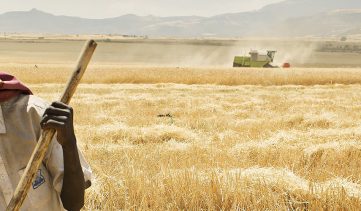Compact2025 focal countries have made significant progress to reduce hunger and undernutrition. As reaffirmed in the recent roundtable discussions, strong national commitment buttressed by support from numerous partners and stakeholders has helped advance food security and nutrition in these countries. However, to meet their goals and end hunger and undernutrition by 2025, progress must be accelerated.

Emerging from the recent Compact2025 roundtable discussions were several key recommendations for accelerating progress. These recommendations, as well as a way forward, are discussed in a synthesis of outcomes from the four roundtable discussions.
While each country faces unique challenges to ending hunger and undernutrition, several cross-cutting recommendations for addressing challenges and exploiting opportunities to accelerate progress emerged in all four countries. These include
- Make strategies, policies, and programs more nutrition-driven
- Improve coordination and accountability
- Enhance and implement policies and scale-up successful programs
- Strengthen capacity
- Fill data and knowledge gaps

Along with recommendations that were common to the four countries, country-specific recommendations were put forth. In Bangladesh, empowering women will help achieve food security and nutrition goals while promoting gender equality. In Ethiopia, there is a need to develop policies and accountability for better nutrition. “Breaking the cycle” of food shortages met with humanitarian aid with holistic, transparent, and market-driven approaches is a critical recommendation for Malawi. Participants in the Rwanda roundtable discussion highlighted the crucial role for communications and advocacy for better nutritional outcomes.
As a way forward, Compact2025 aims to set up a Knowledge and Innovation Hub in each focal country, ideally within a high-level government office in partnership with relevant ministries and stakeholders. The hubs will work to support country goals, processes, and programs with demand-driven research and innovation for the purpose of accelerating progress. They will help to collect data, strengthen capacities, and enhance tracking and monitoring and evaluation systems.

The hubs will synthesize lessons and compile, share, and communicate information and best practices within and across focal countries. The country hubs will be supported by a global Knowledge and Innovation Hub that is currently in development.
The one-day roundtable discussions took place in Compact2025 focal countries Bangladesh (May 5, 2016), Ethiopia (March 28, 2016), Malawi (May 26, 2016), and Rwanda (March 24, 2016). The purpose of the meetings was to set the critical groundwork for assessing how to accelerate progress to end hunger and undernutrition in each country by 2025.

For more details on the roundtable discussions and documentation on each country’s current food security and nutrition situation, policy environment, and recommendations emerging from the roundtable discussions, see the blog posts for Bangladesh, Ethiopia, Malawi, and Rwanda.



